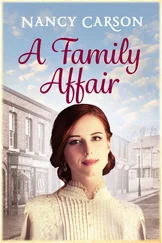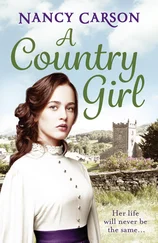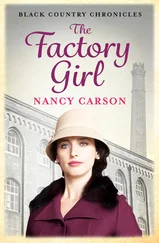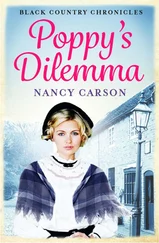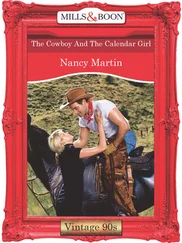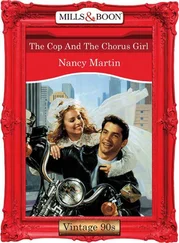‘What’s the rush? I sometimes think as men ain’t worth the bother anyroad. They can’t wait to bed yer, buying yer presents and giving yer all that fancy sweet talk just to get you there. And then, when they’ve had yer, they treat yer like flipping dirt.’
‘I’m sure they ain’t all like that,’ Lucy said distrustfully, and fell quiet.
The train rumbled over the towering wooden construction that was Parkhead Viaduct and she gazed through the window at the busy network of canals that converged beneath it, and at the area’s countless smoking chimney stacks, without really seeing any of it. She was deep in thought, grieving over the imagined monumental flaw in her looks or demeanour that rendered her positively repulsive to men. Even though no such flaw existed, Lucy was lacking in self-confidence because she firmly believed otherwise. This erroneous conviction compounded the problem, rendering her a little bit reserved, which men interpreted as being ‘stuck-up’. And what ordinary factory wench had the right or reason to be stuck-up?
Lucy was not yet twenty years old and most of her friends the same age were courting. Some were even wed. This fact nagged at her, not incessantly, nor obsessively, but sometimes; and this moment was one such time. But when she was among her own friends and family, and not blighted by misgivings over her fancied inadequacies, she was good company, bright and amiable, and even witty on occasions.
‘I think I ought to try and get out a bit more,’ she said to Miriam, releasing herself from her depressing daydream. ‘I think I should try and mix more with folk.’
‘You mean mix more with men,’ Miriam corrected with a knowing look. ‘I don’t know what you’m worried about. Are you sure there’s no men where you work?’
‘None as I’d want. There’s Jake Parsons who’s too old, Bobby Pugh who’s too ugly, Georgie Betts whose feet are too stinky … Then there’s Alfie Mason who’s got a wall eye and a hair lip … Oh, and Ben Craddock who never stops farting.’
‘You’m too fussy.’
‘I could afford to be fussier, if only chaps was falling over themselves and each other to ask me out.’
‘What d’you do nights?’
‘What is there to do nights? I generally sit with my mother, picking my feet and pulling faces at the dog, while my father goes boozing up at the Whimsey.’
Miriam chuckled at the mental image. ‘So why don’t you go with your father up the Whimsey for a change?’
Lucy laughed with derision at the notion. ‘Decent girls don’t go to public houses.’
‘They do if they work there. You could get a job nights serving beer. You’d meet plenty men.’
‘Yes, all fuddled old farts … like my father.’
‘Young chaps as well, Lucy. Hey, it’d be worth a try.’
‘I doubt whether my mother would let me,’ Lucy replied resignedly. ‘You know what she’s like.’ She lapsed into deep thought again, considering the possibilities.
The train was drawing to a halt at Round Oak Station. When it stopped Lucy pressed her cheek against the window, looking again for sight of the chirpy guard. Those who had alighted made their way across the platform while others embarked, bound for Stourbridge, Kidderminster and beyond.
‘Can you see him?’ Miriam enquired, realising why her friend was scanning the platform.
‘No, but I just heard his whistle.’
The train eased out of the little station. As it picked up speed down the incline towards Brettell Lane station, Lucy picked up her basket in readiness for when they would alight in just a minute or two.
When they drew to a halt at Brettell Lane, Lucy opened the door and stepped expectantly onto the platform. She looked longingly towards the rear of the train, hoping to see the guard jump down from his van. She was not disappointed and she lingered, adjusting her bonnet via her reflection in the carriage window for a few moments, hoping he might beckon her to go to him, or reach her before her tarrying seemed indecorous. But Miriam cannily took her arm and urged her to move. Lucy complied with reluctance as she glanced wistfully behind her at the guard. He smiled again and waved and she waved back, with all the coyness of inexperience manifest in her blue eyes.
‘Come on, Luce, don’t let him think as you’m waiting for him. Pretend you ain’t bothered one road or th’other.’
‘Is that the way to play it?’ Lucy asked doubting her friend’s advice. ‘Shouldn’t I let him see as I’m interested?’
‘You already did. It’s supposed to be the man what does the chasing.’
‘But what if he don’t?’ Lucy asked ruefully. ‘He needs to know as it won’t be a waste of time chasing me.’
‘Listen, if we go to Dudley next Saturday afternoon and catch the same train back, he’s ever likely to be on it, ain’t he? You can flash your eyes at him then.’
‘I can’t wait a week, Miriam.’
‘Oh, don’t be so daft. In a week you’ll very likely have forgot all about him.’
The girls went to Dudley again the following Saturday and caught the same train back, but there was no sign of the guard. There was a guard, of course, but it was not the same man, to Lucy’s crushing disappointment. They repeated the exercise over the following three weeks, each time with the same result, and poor Lucy realised she was never going to meet this man who had bewitched her, who had introduced a swarm of butterflies to her stomach.
‘It’s Fate,’ Miriam told her flatly. ‘You ain’t meant to have him. If you was meant to have him you’d have seen him by now, and very likely have stepped out with him a couple o’ times. You ain’t meant to have him, Lucy. Anyroad, if we come to Dudley next week I want to catch an earlier train back.’
During high summer in Brierley Hill a breeze was regarded as a blessing. It not only cooled, but helped clear the air of the grimy mist and the sulphurous stinks perpetrated by the high concentration of ironworks, pits, firebrick works and bottle factories, whose chimney stacks belched out smuts and smoke like the upended cannons of an army in disarray. It was one such breezy summer evening in August 1856, the week following Lucy’s final disappointment, that Haden Piddock, her father, was returning home from his labours at Lord Ward’s New Level Iron Works, more commonly known as ‘The Earl’s’, to his rented cottage in Bull Street. On the way he met Ben Elwell, carrying his pick and shovel over his shoulder like a soldier would carry a pair of muskets. Ben was not only a reluctant miner but also the eager landlord of the nearby Whimsey Inn in Church Street.
‘I’ll be glad to get me sodding boots off,’ Haden commented. The clay pipe in his mouth, held between his top and bottom teeth, was amazingly not detrimental to his speech for, over the years, he had perfected the knack of conversing with clenched teeth. The pipe, however, had gone out and Haden had not been able to re-ignite it. ‘Me feet am nigh on a-killing me. As soon as I get in th’ouse, I’ll get our Lucy to fetch me a bowl o’ wairter from the pump so’s I can give ’em a good soak.’
‘Yo’ need warm water to soak yer feet, Haden, lad. Otherwise you’ll catch a chill.’
Haden turned to look at his mate, surprised he should feel the need to remind him of what was blindingly obvious. ‘Yaah!’ he exclaimed sarcastically. ‘D’you think I’m saft enough to stick ’em in cold wairter, you daft bugger?’ He took his pipe from his mouth and cursorily inspected the inside of the bowl. ‘I’d get our Lucy to warm it up on the ’ob fust.’
‘That daughter o’ yours looks after yer well, Haden.’
‘Better than the missus, when there’s fetching and carrying to be done.’ He tapped his pipe against the palm of his hand to loosen the carbonised tobacco, and allowed the debris to fall to the ground.
Читать дальше


